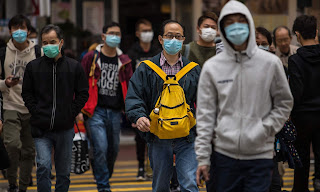Department Of Health And Human Services Victoria
It spreads the same way other coronaviruses do, mainly through person-to-person contact. People who are older or who have existing chronic medical conditions, such as heart disease, lung disease, diabetes, severe obesity, chronic kidney or liver disease, or who have compromised immune systems may be at higher risk of serious illness.
Cover your face with a cloth face covering in public spaces, such as the grocery store, where it's difficult to avoid close contact with others, medical networks if you're in an area with ongoing community spread. Keep at least six feet between yourself and another person in all public places including the library, dining halls, Frist, Prospect House, etc.
More than 6,200 pharmacy professionals who left the register within the past three years have been given temporary registration so that they can to return to work during the COVID-19 pandemic, if they wish to do so. And in guidance published on 9 April 2020, final year pharmacy students were told they can join their arranged preregistration workplace ahead of the scheduled start date to help deal with the COVID-19 pandemic.
People with mild symptoms who are otherwise healthy should manage their symptoms at home. The other coronaviruses cause most of the colds that affect us during the year but aren't a serious threat for otherwise healthy people. And on 23 March 2020, Johnson announced a strict lockdown of the UK to be enforced by police, instructing people to stay at home except to buy essential food and medicines, one form of exercise a day, any medical need, and travelling to and from essential work.
The virus spreads by respiratory droplets released when someone with the virus coughs, sneezes or talks. The U.S. Centers for Disease Control and Prevention (CDC) is emphasizing that while the current COVID-19 poses a potentially serious public health threat, the risk to individuals is dependent on exposure. But if you aren't in an area where COVID-19 is spreading, haven't traveled from an area where it's spreading, and haven't been in contact with someone who has it, your risk of infection is low.

Comments
Post a Comment